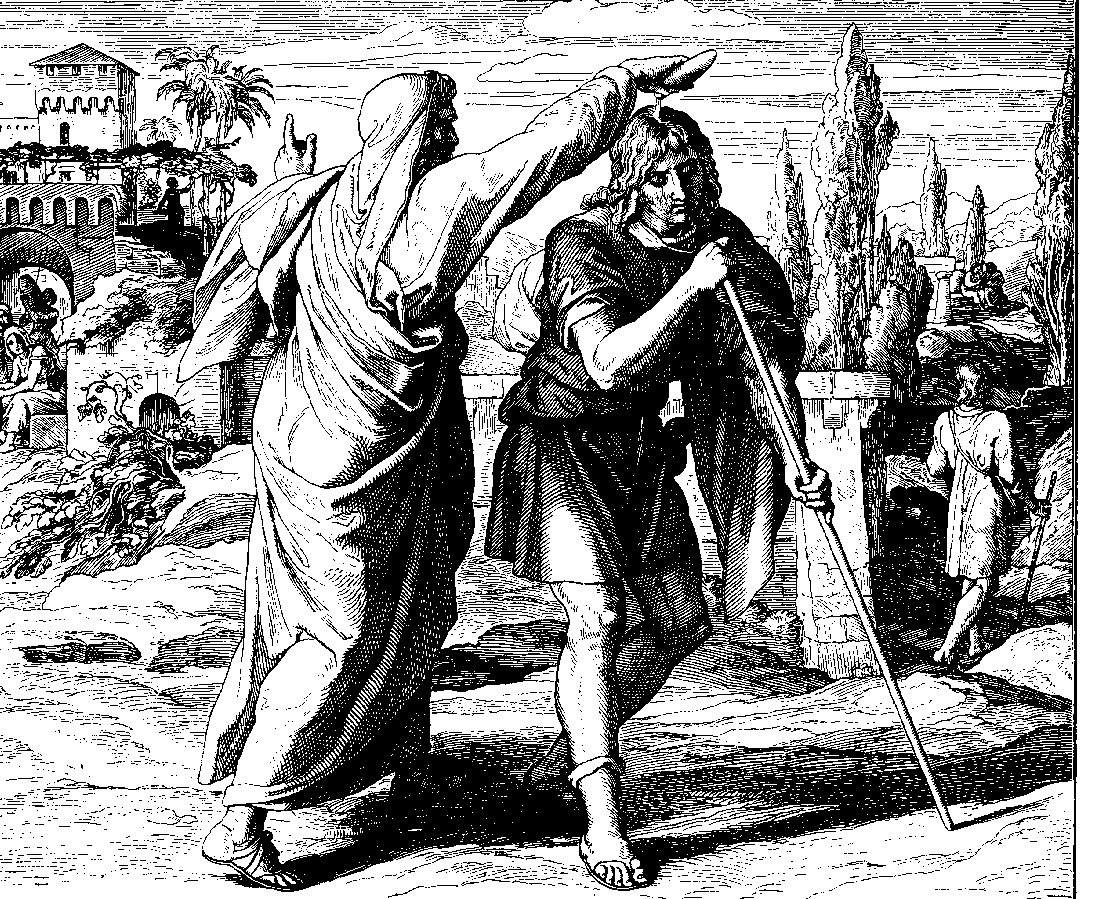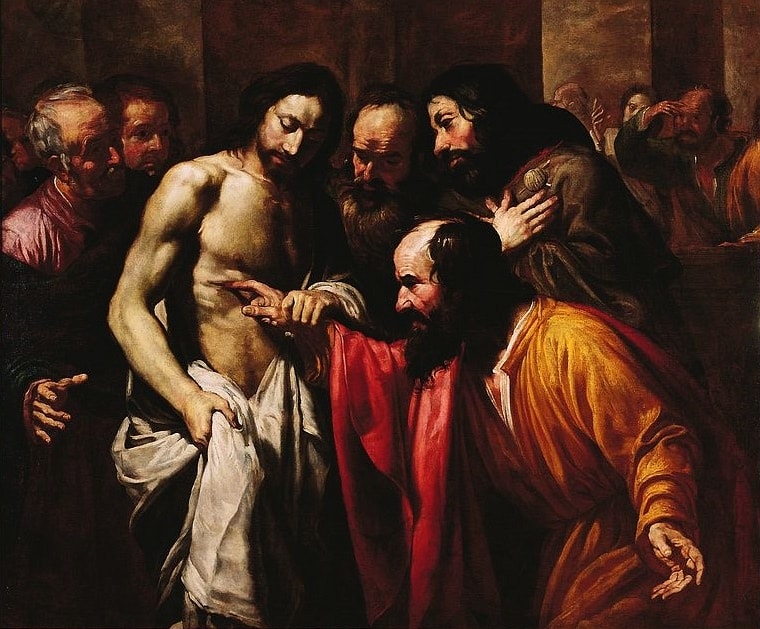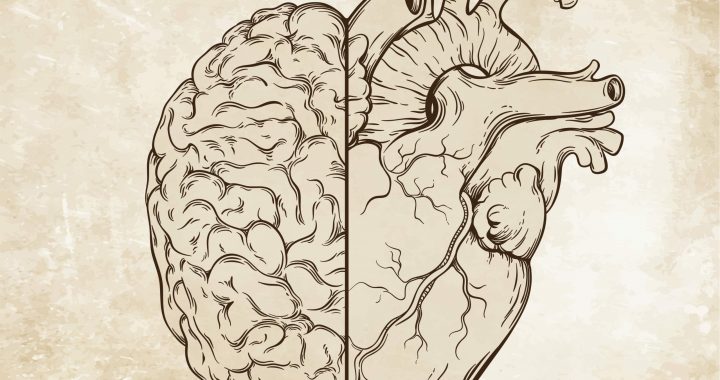Hear O Israel the LORD is our God the LORD is one, and as for you, you shall love the LORD your God with all of your heart, with all of your soul, and with all of your strength.
For thousands of years every morning and evening, the Jews prayed the Shema
As far as the English translation goes: you are commanded to love your God with all your heart. However, the Hebrew word used in the original text is Levav.
To our modern eyes it would suggest that an emotional kind of love is being commanded but to the Jews, levav encompasses a much wider sense than merely ‘heart’.
Walking with God, using your Levav
Indeed, when the biblical authors talk about the heart in many other ways that might seem strange to contemporary readers but actually make sense in context when you interpret the English “heart” with its other mentions in the Bible. The reason why so much of ‘decision making’ happens in the “heart” is because the Israelites had no concept of the brain or even a word for it. What they imagined was that all of a human’s intellectual activity took place in the heart.
In the book of Proverbs, wisdom dwells in the heart. Solomon used his heart to make decisions and as you might well realise, making decisions from the heart is rarely a good idea.
In 1 Samuel 13:14, we also find this description for King David: “But now your kingdom shall not endure. The Lord has sought for Himself a man after His own heart, and the Lord has appointed him ruler over His people, because you have not kept what the Lord commanded you.”
So what is Levav? It denotes the whole decision making apparatus of a person, both emotions, and intellect. So when the Bible says that David was a man after God’s heart, it is a descriptor that though that King David was a man of faith and while it meant that he was by no means perfect, he would own up to his mistakes.

When God’s first anointed King of Israel Saul, a man known to be handsome and generous, began to believe in his own ability rather than acknowledge that the God who who blessed him abundantly, that anointing fell onto David’s shoulders.
From the Bible, we know that David’s giant slaying faith kept him in good stead. David even loved his enemy, Saul, centuries before the promised Messiah would make it a command – opting not to take matters into his own hands but rather trusting in God’s timing.
It is crucial to note, David’s levav was helping him make all the right God-oriented decisions: An emotional person might decide to kill his enemy. A logical person might rationalise that killing Saul would be better for the fledgling Israelite kingdom. Instead, with levav, emotions and rationality combined to give David uncommon wisdom to trust God despite being clearly able to “settle his problems” with a thrust of the sword.
Even when he made Saul-like mistakes of trusting his own might with an ill advised taking of census against God’s wishes (in those times, a man only had the right to count or number what belonged to him. Israel belonged not to David but rather to God) he was quick to repent and when God offered him a choice of three punishments: famine, rival kingdoms or plague – the first two would have involved some level of dependency upon the mercy of man: warfare could after all be as severe as a human enemy wanted and famine would require Israel to relying on the generosity of other nations, David chose to rely on the mercy of God — pestilence was a direct form of punishment from God, and during a plague they could (ideally) beg a compassionate God for relief.
“You shall love the Lord your God with all your heart, with all your soul, and with all your strength.”
Deuteronomy 6:5
Time and again, David put God in his heart and God’s love and intellect allowed him to be a leader not only worthy of his people but also the bloodline that would lead to our Messiah.
To the ancient Israelites these aspects of the inner person, heart and mind, were combined in this single term. Therefore, in Deuteronomy 6:5 we are ordered to love the Lord with every fibre of our being.
Why is understanding Levav so important?
Sometimes, circumstances might be beyond our intellectual comprehension. We know, as did the early Hebrews, that fire burns and in severe cases, outright kills us. For Shadrach, Meshach, and Abednego (Hebrew names Hananiah, Mishael, and Azariah), they knew that certain death awaited them as they were thrown into a fiery furnace by Nebuchadnezzar II, King of Babylon for refusing to bow to the king’s image.
It was here that their ‘emotional fidelity’ rather than their minds to recognise that, “If we are thrown into the blazing furnace, the God we serve is able to deliver us from it, and he will deliver us from Your Majesty’s hand. But even if he does not, we want you to know, Your Majesty, that we will not serve your gods or worship the image of gold you have set up.” – rationality allowed them to recognise the fire, what it could do and what God could do. Emotions recognised that even if God didn’t deliver them, God would still be there for them in the world beyond. In their case, there was a fourth person in the fire with them, the Word-to-be made flesh.

Perhaps, the best example is St. Paul himself, an exemplary scholar of the Torah. When we look at Paul’s own language to describe his pre- and post-Damascus road experience, we begin to understand his perception of himself. Highly educated, he was zealous for the law until when he discovered Christ’s true identity when he counted it all rubbish (Phil 3:4-7). He calls his former self a “persecutor of the church” (3:6), and whatever righteousness he had, he considered it his own, having come from the law, not having come from Christ through faith (3:9). His rationality was so strong, it blinded him to truth, until his healing opened his literal and metaphorical eyes.

There are some who believe that blind faith is contemptible. Indeed, ignorant, uncritical adherence to something that doesn’t make any sense is a rejection of rationality and evidence and in some sense, a contradiction to a Creator-God who made a knowable universe. However, Jesus seemed to invoke blind faith when he appears to Thomas after his resurrection: “Have you believed because you have seen? Blessed are those who have not seen and yet come to believe” (John 20:29). But the reality is that St. Thomas is a picture of God appealing to our levav when those of us so inclined need evidentiary facts to make that transition from unbelief.
That Thomas is recognised as a saint today shows that knowing, loving and walking with God requires that you do so with all of you, not just parts of you. He didn’t even believe his own friends – the very people that he’s been on ministry with for three years. Yet, when Jesus appears, the Lord understands this skeptic, and beyond the superficial admonishment, our Lord gives Thomas the ability to not only get over his loss of faith, but to know clearly – “put your fingers in my hands and my side,” asks the Lord.
What Jesus actually offered Thomas with that action was the gift of loving God with all his levav and never doubt again. To the point where Thomas gives the most ardent testimony and confession of Jesus, not only His resurrection, but His divinity, making St. Thomas the perfect Blaise Pascal advocate. (Pascal once said, “the skeptic who comes over the line becomes the most passionate evangelist.”) – Such was his fervour that Thomas was the only one of the apostles who spread the word beyond the middle east. According to Syrian Christian tradition, Thomas was killed with a spear at St. Thomas Mount in Chennai on 3 July in AD 72, and his body was interred in Mylapore. Today, we have him to thank for the Mar Thoma Syrian Church.
It is through this levav that God often sees our faith justified. Sometimes, we pray with the attitude that God should take our fire or trial away, but loving God with all your levav would allow you to recognise that God would be in the fire with you, just as He was with Shadrach, Meshach, and Abednego and just like how Jesus recognised that while emotionally, He wanted “the cup to be taken away” but loving with His levav, He understood, “not my will but thine be done.”
So, “Hear O Singapore the LORD is our God the LORD is one, and as for you, you shall love the LORD your God with all of your heart, with all of your soul, and with all of your strength.”
